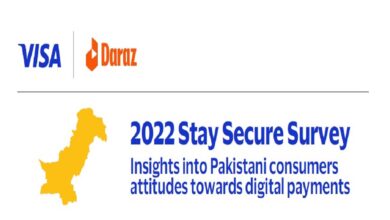PM’s Task force for IT urges to boost digital economy

The policy and regulatory facilitation could help the digital economy of Pakistan to grow and reach at its best potential and hence, to contribute to the national economy more robustly.
The experts on trade and economy said this while speaking at public private dialogue on ‘Pakistan in digital trade – challenges and opportunities’ organized by the Sustainable Development Policy Institute (SDPI), here on Thursday.
Member Prime Minister’s Task Force on IT, Pervez Iftikhar, while presenting an overview of IT and Telecom sector in Pakistan, opined that the regulations of Pakistan Telecommunication Authority and State Bank of Pakistan at present are not conducive enough to bring investment in this sector from abroad. The processes are tedious, and the availability of market data desired by investors is missing.
He added further that the public sector is not investing own budget in the production and facilitation of digital technologies and data protection law much desired by local and foreign investors is still awaited. Therefore, such a regime is encouraging even the local Pakistani firms to keep their data services outside of Pakistan, he concluded.
Managing Director, Pakistan Software Export Board (PSEB), Osman Nasir, was of view that the lack of venture capital and comprehensive insurance framework in digital sector is discouraging investors. He said that the double taxation treaties also need to be promoted to boost trade-in-services in addition to efficient judicial system.
“PSEB is helping to set up a private trading index for technology companies on PSX,” he said and added further that PSEB is also working to address any adverse perceptions about Pakistan as an investment destination.
Dr Vaqar Ahmed, Joint Executive Director, SDPI, emphasized that digital economy requires allowing greater trade in IT and ICT products and the promotion of stronger digital infrastructure. He explained that government’s response to crises like Covid19 and monsoon rains remained weak in some regions of the country due to poor internet connectivity.
He said: “The bottlenecks preventing global brands in IT sector to come to Pakistan include high fixed and sunk costs, weak data protection, complex tax regime, lack of trained human resources, discrimination in public procurement, and inability of local lending institutions to understanding financing needs of firms”. Both federal and provincial governments along with regulators should work together to make digital technologies accessible and affordable for all and rules and regulations in the digital sector should be inline with international practices, he concluded.
Mr Rafay Khan, Economist with World Bank, on the occasion said that the digitization at firm level has taken place due to Covid19. However, many of the firms were still not able to adopt digital technologies due to weak financial and human resources. Gonzalo Varela, Senior Economist of the World Bank, was of view that tax regime in IT sector needs improvement and visa issues faced by Pakistani entrepreneurs need to be resolved.
Director-General at Pakistan Telecommunication Authority (PTA), Arif Sargana, informed the participants that PTA is working to promote cloud services for greater data storage. Moreover, the Government of Pakistan is focused on implementation of ‘digital Pakistan vision’ and IT related exports are now on the rise resultantly.
Senior Corporate Lawyer, Ms Saira Khalid highlighted the need of building consumers’ confidence in online transactions, which is still very low currently. Besides, she said, the laws protecting investors in e-commerce sector need to be fully implemented.
PTA Taxes Portal
Find PTA Taxes on All Phones on a Single Page using the PhoneWorld PTA Taxes Portal
Explore NowFollow us on Google News!





